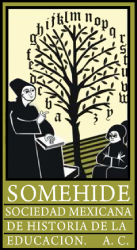Movimientos estudiantiles y conflictos políticos en la Normal del Mexe
DOI:
https://doi.org/10.29351/amhe.v1i1.272Palabras clave:
Educación pública, Normales Rurales, movimiento estudiantilResumen
Los movimientos estudiantiles han estado presentes desde finales del siglo XIX como una particularidad en la que los estudiantes demandaban mejorar condiciones de estudio, alojamiento y ayuda financiera. En las Normales Rurales se soportan en una lucha por aumento de presupuesto, incremento de becas, mejora en dormitorios. En sus organizaciones predomina una composición social heterogénea, basadas en un liderazgo múltiple y una actitud eminentemente anti-estatal. El movimiento estudiantil reconfigura la identidad del sujeto a partir del rol que desempeña en la organización estudiantil y la institución, esto le da sentido de pertenencia hacia la misma. Para el normalista del Mexe el movimiento estudiantil va más allá de la solución a un pliego petitorio, se sustenta en la consolidación de un proyecto de vida personal y profesional y en una lucha constante por la defensa de la educación pública. Se argumenta desde la perspectiva estudiantil y su experiencia en movimientos estudiantiles, pueden existir otros relatos a la par o al margen, mostrando una lectura distinta del pasado, esto alimentará la memoria colectiva y le dará mayor significado a través de la coexistencia de múltiples versiones. Esta historia está subyugada a la influencia política local y estatal, reconociendo en el discurso reclamos hacia una política educativa y gubernamental que históricamente limitó las posibilidades de hacer de esta institución la mejor en su tipo. Este estudio historiográfico se soporta en el análisis de distintas fuentes, el sustento más rico proviene de los protagonistas, quienes, al desprenderse en su discurso de la historia oficial, permiten configurar un escenario distinto al que socialmente se ha presentado. La revisión de periódicos, publicaciones, videos e imágenes permitieron triangular la información con la oralidad de los sujetos protagónicos.
Citas
Althusser, L. (2014). Ideología y aparatos ideológicos del Estado. México: Grupo Editorial Tomo.
Aranda S., J. (2000). El movimiento estudiantil y la teoría de los movimientos sociales. Convergencia. Revista de Ciencias Sociales, 7. Recuperado de: http://www.redalyc.org/articulo.oa?id=10502108.
Belsasso, B., y Fernández M., J. (2012). La élite y la raza. La privatización de la educación. México: Taurus.
Civera C., A. (2004). La legitimación de las Escuelas Normales Rurales. Recuperado de: http://www.ses.unam.mx/docencia/2016II/Civera2004_LegitimacionEscuelasNormalesRurales.pdf.
Coll, T. (2015). Las Normales Rurales: noventa años de lucha y resistencia. El Cotidiano, (189), 83-94. México: UAM Azcapotzalco. Recuperado de: http://www.redalyc.org/articulo.oa?id=32533819012.
COPI (2001). 75 años de lucha. Mexe, Hidalgo, México.
Gómez N., A. (2003). El movimiento estudiantil mexicano. Notas históricas de las organizaciones políticas, 1910-1971. Revista Mexicana de Investigación Educativa, 8. Recuperado de: http://www.redalyc.org/articulo.oa?id=14001712.
Granados M., C. (2016). Libro hemerográfico, El Mexe Hgo.
Mendoza G., J. (2009). El transcurrir de la memoria colectiva: la identidad. Casa del Tiempo. Recuperado de: http://www.uam.mx/difusion/casadeltiempo/17_iv_mar_2009/casa_del_tiempo_eIV_num17_59_68.pdf.
Navarro G., C. (2015). Ayotzinapa y la estirpe insumisa del normalismo rural. El Cotidiano, (189), 95-105.
STAUACH[Sindicato de Trabajadores Académicos de la Universidad Autónoma de Chapingo] (2014). Las Escuelas Normales Rurales en México: de proyecto revolucionario a enemigo del poder. México: Universidad Autónoma de Chapingo.
Street, S. (2005). Estudio de los conflictos en los sistemas educativos de la región: agendas, actores, evolución, manejo y desenlaces. Estudio de caso: la conflictividad en México (1998-2003). Buenos Aires: CIESAS-Occidente.
Descargas
Publicado
Cómo citar
Número
Sección
Licencia
Todos los contenidos del Anuario Mexicano de Historia de la Educación se publican bajo una licencia Creative Commons Atribución No Comercial 4.0 Internacional (CC BY-NC 4.0), que permite compartir (copiar y redistribuir el material en cualquier medio o formato) y adaptar (remezclar, transformar y construir a partir del material) para fines no comerciales, dando los créditos a los autores y a la revista, tal como lo establece la licencia.
La política de acceso abierto y de licencias con “algunos derechos reservados” no niega la propiedad intelectual ni los derechos de los autores respecto a sus artículos, pues ellos son los titulares, en tanto que el Anuario Mexicano de Historia de la Educación no los reserva para sí ni para la institución editora, ya que se apegan a movimientos de acceso abierto como los Principios y Valores del Sistema de Información Científica Redalyc - Red de Revistas Científicas de América Latina y el Caribe, que pugnan por la eliminación de las políticas de embargo para que el autor retenga los derechos de su obra (principio número 8). Así como las políticas de acceso abierto del Directory of Open Access Journals (DOAJ).
Los autores podrán distribuir su propio material en cualquier otro medio o soporte, siempre y cuando sea para fines no comerciales, informando a los editores que el trabajo será publicado nuevamente y dando el crédito correspondiente al Anuario Mexicano de Historia de la Educación.
La publicación en el Anuario Mexicano de Historia de la Educación, por su carácter gratuito, no da derecho a remuneración económica alguna a los autores, ni a los dictaminadores.
Los lectores podrán reproducir (copiar), comunicar, distribuir o hacer obras derivadas de los artículos o colaboraciones publicados en el Anuario Mexicano de Historia de la Educación en los siguientes casos:
- Para fines públicos.
- Sin fines comerciales.
- Que se reconozca la autoría de la obra y se cite su origen con información completa: Apellido/s del autor, inicial/es del nombre/s. (año de publicación). Título del artículo. Nombre de la revista, volumen (número de ejemplar), página inicial del artículo-página final del artículo. DOI o URL (formato sugerido de acuerdo al estilo APA en su versión más reciente).
El cuerpo editorial del Anuario Mexicano de Historia de la Educación asumirá el compromiso de notificar oportunamente a los autores sobre cualquier cambio de ubicación de los artículos en el sitio (cambio de dirección URL o de conexiones para identificar el artículo).
Los autores, al enviar sus trabajos para su posible publicación, deberán tomar en cuenta los puntos anteriores, mismos que se contemplan en el Acuerdo entre autor y el Anuario Mexicano de Historia de la Educación.











